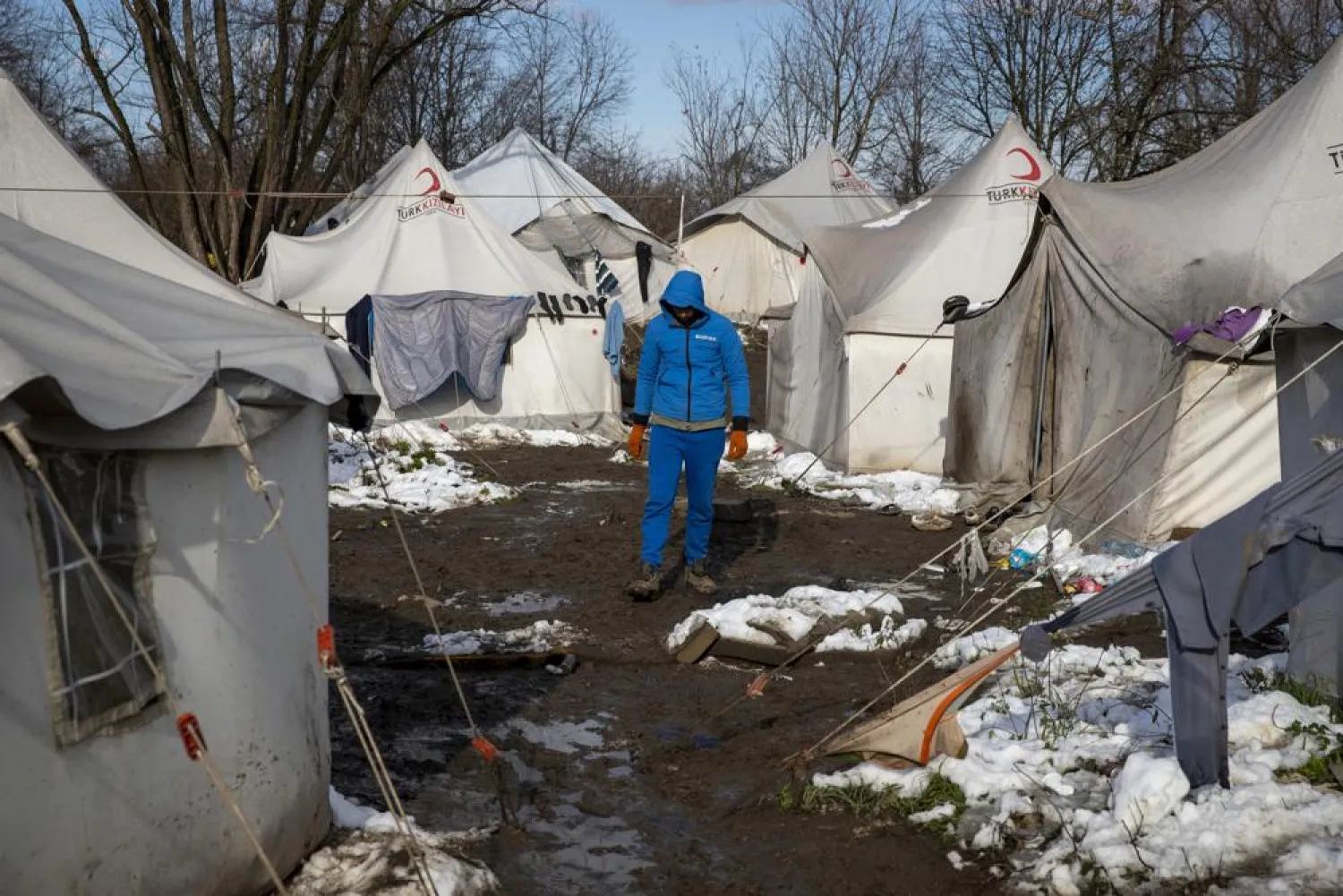Germany on Thursday hosted a meeting with representatives of the European Union and several European countries — including from the western Balkans — in an effort to curb migration via the so-called Balkan route.
"We want to protect the people who flee to us from war and political persecution," German Interior Minister Nancy Faeser said. "At the same time, we also take decisive action against irregular migration ... our declared goal is to reduce the rising irregular migration via the western Balkans route."
In recent months, an increasing number of migrants have been trying to reach wealthier western European countries via the Balkans, often paying smugglers thousands of euros (dollars) to take them across borders without valid travel documents.
The package of measures that western European and EU officials pushed for at the Berlin meeting include aligning the visa policies of western Balkan states Serbia, Albania, Bosnia and Herzegovina, Kosovo, Montenegro and North Macedonia — all of which want to join the 27-nation bloc — with EU standards, combating trafficking of migrants, ensuring effective border protection and speeding up deportations.
Especially Serbia has been pressured by EU countries to restrict its lax entry policies and no longer allow visa-free travel for citizens from India, Tunisia, Morocco and elsewhere. These people often use Serbia as a loophole to enter the continent and continue from there to the west.
While Germany has welcomed more than 1 million Ukrainian refugees — mostly women and children — who entered legally since Russia attacked the eastern European country on Feb. 24, the government has recently struck a much more hostile tone regarding migrants from more distant parts of the world.
By the end of September, Germany’s federal police had registered almost 58,000 unauthorized entries at the country’s borders — mostly in the east, where the Balkan route ends. According to preliminary figures, there were 12,720 cases in September alone, more than twice as many as a year earlier, dpa reported.
Austria, the Czech Republic and other central European countries have also reported increased entries of migrants and asylum seekers.
Almost 135,000 people had applied for asylum in Germany in 2022 by the end of September. That is around a third more than in the same period last year, according to the Federal Office for Migration and Refugees. However, it’s still a far call from 2015-16, when more than 1 million migrants, mostly from Syria, Iraq and Afghanistan applied for asylum in Germany.
The figures for asylum applications in 2022 are much lower than the total number of refugees because Ukrainians can enter Germany without a visa and do not need to apply for asylum.
Migration expert Gerald Knaus expressed doubt whether officials' attempts to prevent migration to the EU via the Balkans would curb the current influx.
"Closing the Balkans route has never worked so far," Knaus told newspaper group RND, adding that "the pressure currently comes not from illegal migration, but from legal migration. Nine out of ten refugees come from Ukraine."
German cities and communities have recently expressed concern about the difficult housing situation of refugees and have demanded help from the federal government. More Ukrainian refugees are expected to arrive in Germany as winter approaches and Russia's attacks on Ukraine are becoming increasingly brutal.
A small but vocal far-right minority has also tried to use the refugees as scapegoats for the rising food and energy prices that are linked to Russia's war on Ukraine.
On Wednesday, a refugee shelter for Ukrainians was burnt down on Germany's Baltic Coast and investigators said they're looking into politically motivated arson.









